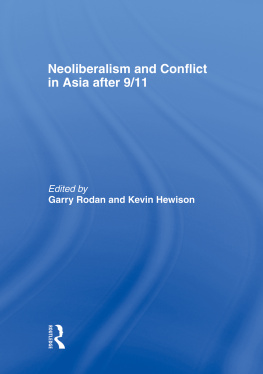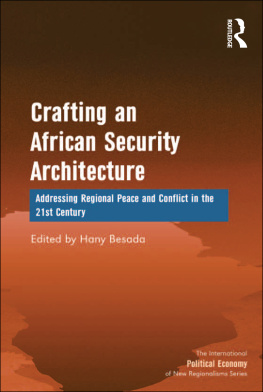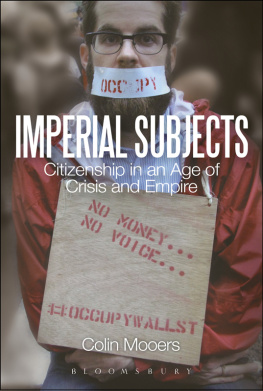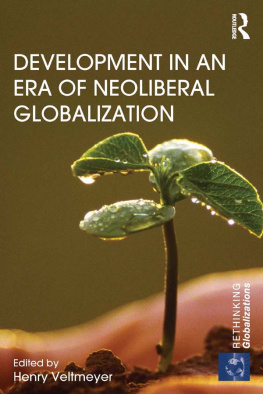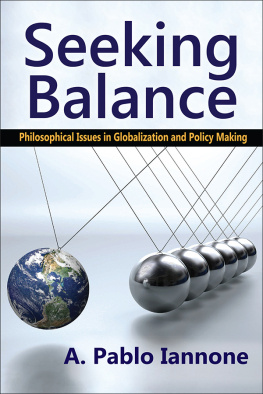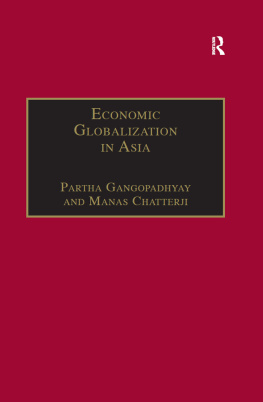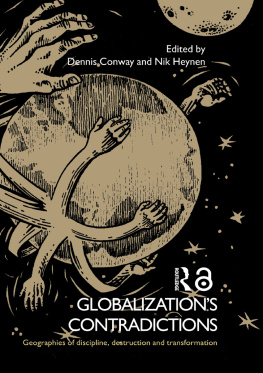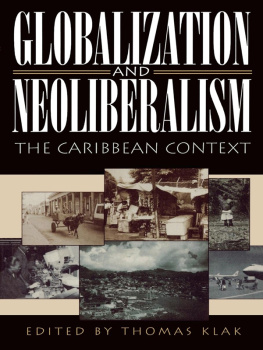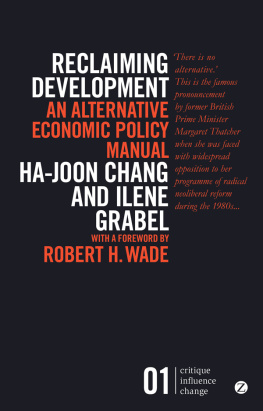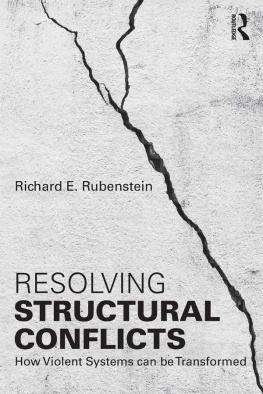Neoliberalism and Conflict in Asia after 9/11
Key events in Asias recent history have included the end of the cold war, the Asian Economic Crisis, and the war on terror. The essays in this book offer a critical assessment of these events, and of the interplay of security and economics in shaping political regimes and modifying market systems.
Based on the notion that market systems are inherently political and conflict-ridden, this collection clarifies and explains the conflicts shaping the path of neoliberal globalization. Collectively it represents a disciplined and systematic address of four overarching questions:
What are the significant conflicts emanating from neoliberal globalization, and what are their implications?
What are the implications of new security concerns for these conflicts, and what are their impacts?
How are conflicts associated with globalization and security affecting social and economic policy directions?
Can these directions be reconciled with the reproduction of existing political regimes, or do they threaten their basis?
In addressing these questions, the essays depict neoliberal globalizationin the new security contextas being able to accommodate a range of political regimes. This fascinating collection is a must-read for those with a professional interest in the region post-9/11.
This book was previously published as a special issue of the journal Critical Asian Studies (ISSN 1467-2715). Visit www.bcasnet.com.
Garry Rodan is Director of the Asia Research Centre and Professor of Politics and International Studies at Murdoch University, Australia.
Kevin Hewison is Director of the Carolina Asia Center and Professor in the Department of Asian Studies at the University of North Carolina, Chapel Hill. He is also a Research Associate of the Asia Research Centre, Murdoch University, Australia.
Neoliberalism and Conflict in Asia after 9/11
Edited by
Garry Rodan and Kevin Hewison
First published 2006 by Routledge
2 Park Square, Milton Park, Abingdon, Oxon, OX14 4RN
Simultaneously published in the USA and Canada by Routledge
270 Madison Ave, New York, NY 10016
Routledge is an imprint of the Taylor & Francis Group
Transferred to Digital Printing 2009
2006 Routledge
Typeset in the USA by Critical Asian Studies.
All rights reserved. No part of this book may be reprinted or reproduced or utilised in any form or by any electronic, mechanical, or other means, now known or hereafter invented, including photocopying and recording, or in any information storage or retrieval system, without permission in writing from the publishers.
British Library Cataloguing in Publication Data
A catalogue record for this book is available from the British Library
Library of Congress Cataloging in Publication Data
A catalog record for this book has been requested
ISBN10: 0-415-37321-2 (hbk)
ISBN10: 0-415-56839-0 (pbk)
ISBN13: 978-0-415-37321-0 (hbk)
ISBN13: 978-0-415-56839-5 (pbk)
Contents
Garry Rodan and Kevin Hewison
Richard Robison
Richard Higgott
Mark Beeson
Ian Taylor
Garry Rodan
Shaun Breslin
Sally Sargeson
Kanishka Jayasuriya and Kevin Hewison
Ben Reid
Wil Hout
Vedi R. Hadiz
This book is an outcome of the Political Regimes and Governance in East and Southeast Asia program of projects conceived and sponsored by the Asia Research Centre (ARC), Murdoch University. It is also the product of a project funded by the Southeast Asia Research Centre (SEARC), City University of Hong Kong. Both centers hosted a conference in Perth, Australia, in August 2003 where the papers were first presented. We also thank Tamara Dent (ARC) and Angel Ho (SEARC) for their administrative and other support at various points in the projects. Special thanks are extended to Tom Fenton, managing editor of Critical Asian Studies, for his superb and efficient work in assisting the editors and contributors in the refinement of the manuscript. Finally, we appreciate the efforts and commitment of all the contributors in this collection.
Garry Rodan and Kevin Hewison
Globalization, Conflict, and Political Regimes in East and Southeast Asia
Garry Rodan and Kevin Hewison
N EOLIBERAL GLOBALIZATION is often seen as a period of enhanced economic interconnectedness that began from the late 1980s. In fact, this globalization is a relatively recent set of processes marking the further expansion of capitalist economic relations. Earlier processessuch as mercantilism, colonialism, and imperialismmay also be identified as significant stages or epochs in global capitalist development. Whatever the periodization or terminology chosen, it remains a fact that conflicts are inherent elements of each period of capitalist expansion. These conflicts are local and global, and social, economic, and political in nature.
Contemporary manifestations of these conflicts are the subject of this book. The focus is on the changing nature and significance of conflicts over neoliberal globalization in East and Southeast Asia since the advent of the economic crisis of 199798 and in the more recent geopolitical context since September 11.
At the beginning of the twenty-first century it seems unnecessary to point out that the Asian region has been an important site of capitalist development. After all, apart from the period of the crisis, the region has witnessed remarkable (if uneven) economic growth since World War II. This growth has been accompanied by extensive economic and social transformations that have seen capitalist relations of production become solidly embedded. Capitalist development everywhere has been attended by conflict and contestation; the Asian region has been no exception to this. However, the nature and impact of these conflicts have not been constant. Rather, we must identify the dynamics that shape conflicts. In this introduction, we intend to identify a set of watershedsor critical junctures in the terminology of Collier and Collier1that have been associated with the continual restructuring and reorganization of capitalist production and the changing geopolitical context within which capitalism has developed in the region. We suggest that these political and economic dynamics have fundamentally influenced the sorts of political regimes that have accompanied the regions incorporation into the global political economy throughout this period. The dynamics of this process have involved a range of critical political and economic junctures. In this introductory chapter, we examine the developing internationalization of manufacturing production and, increasingly, other labor-cost-reducing processes; the increased significance of financial capital; and the important geopolitical reconfigurations associated with the cold war and the more recent war on terrorism (hereafter without quotation marks).
The importance of examining these critical junctures cannot be underestimated. After all, the compatibility or otherwise of the regions prevailing regimes with global capital accumulation strategies has changed dramatically over the period discussed here.2 Whether or not this involves the rules and regulations shaping the distribution of economic or political resources, power relations and alliances of interest are always at stake. The advent of the Asian crisis, for example, brought with it unprecedented pressures on crisis economies to allow greater access for international capital and the adoption of governance regimes that challenged the positions of many of the regions economic and political elites.3 These pressures were associated with a view that the crisis provided ample evidence for the failure of Asian Capitalism. Moreover, the recent U.S.-led war on terrorism, associated with an increasingly unilateralist foreign policy,4 can be expected to play a significant roleas was the case during the cold warin mediating the outcomes of economic and political contestation in the region. U.S. geopolitical concerns are now tempering both the neoliberal emphasis on free trade mediated by multilateral economic institutions and the championing of democracy that had enjoyed increased diplomatic support during the 1990s.5

